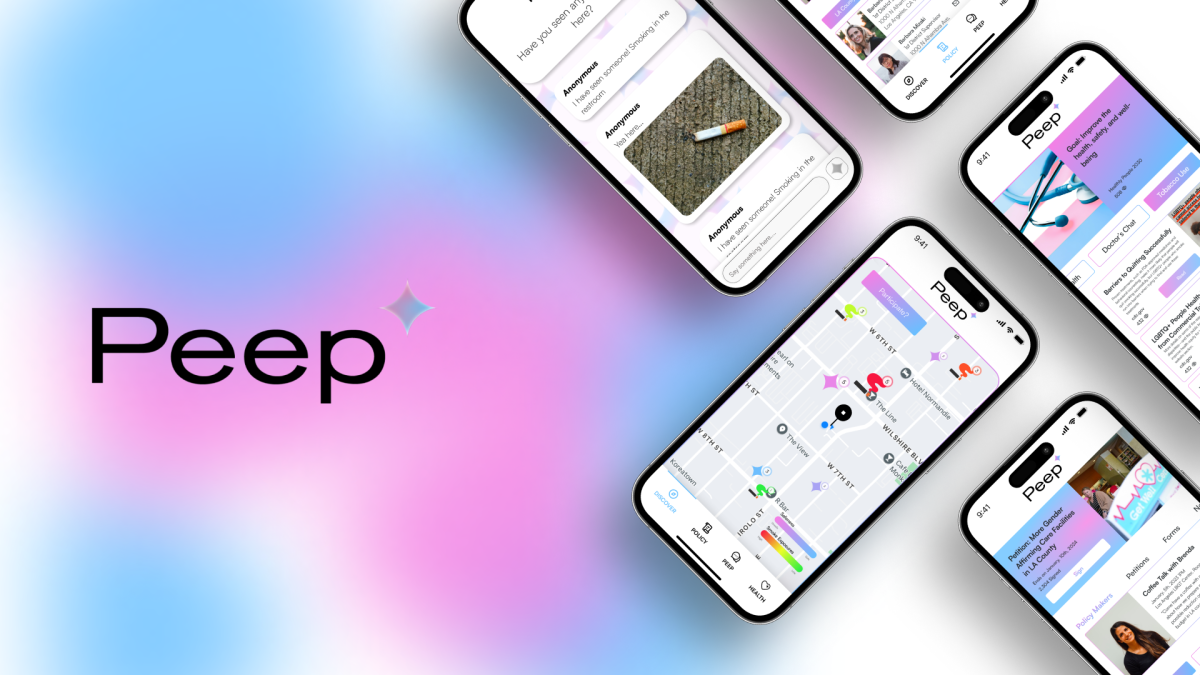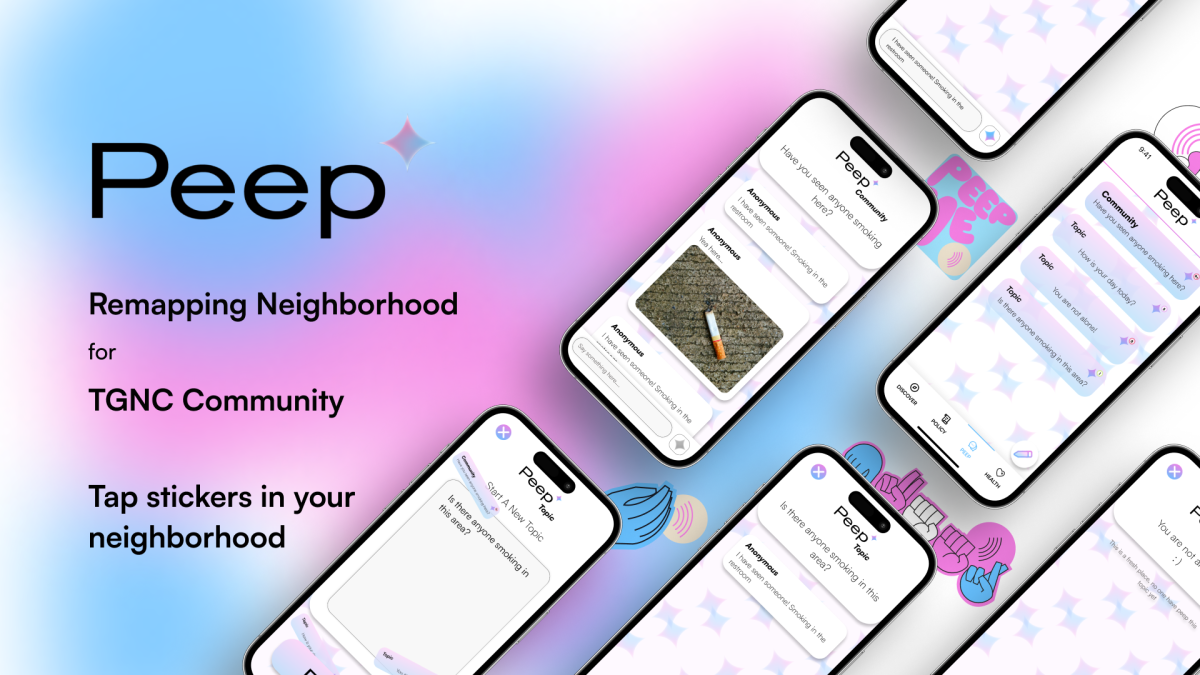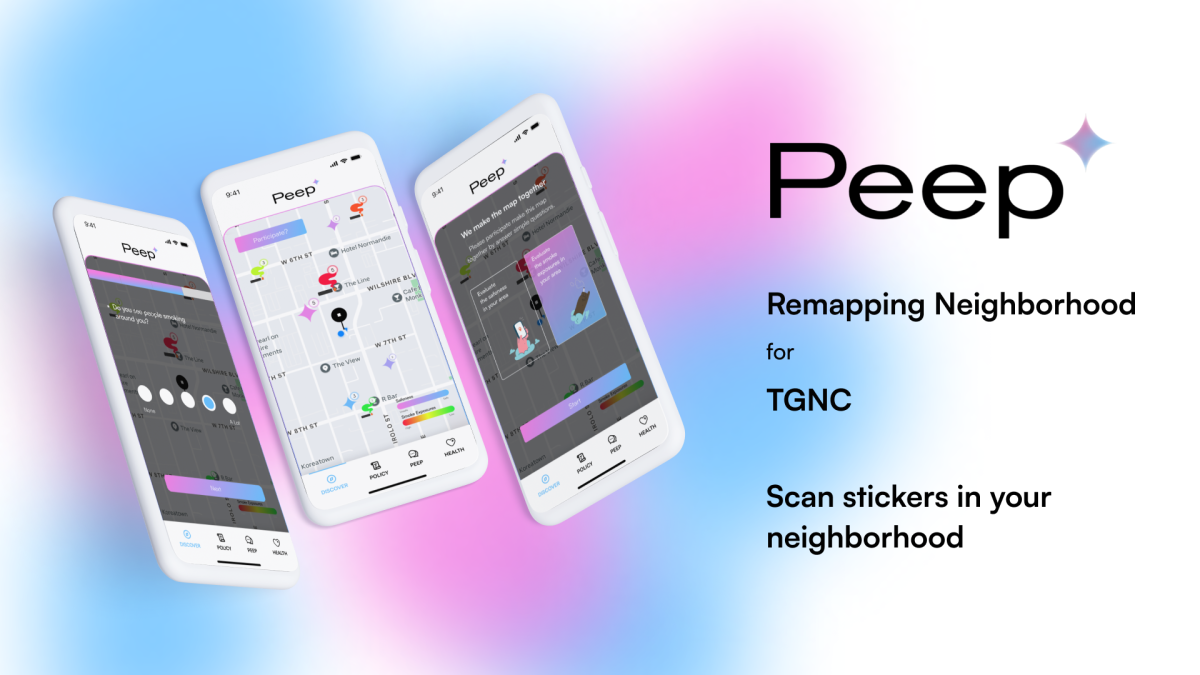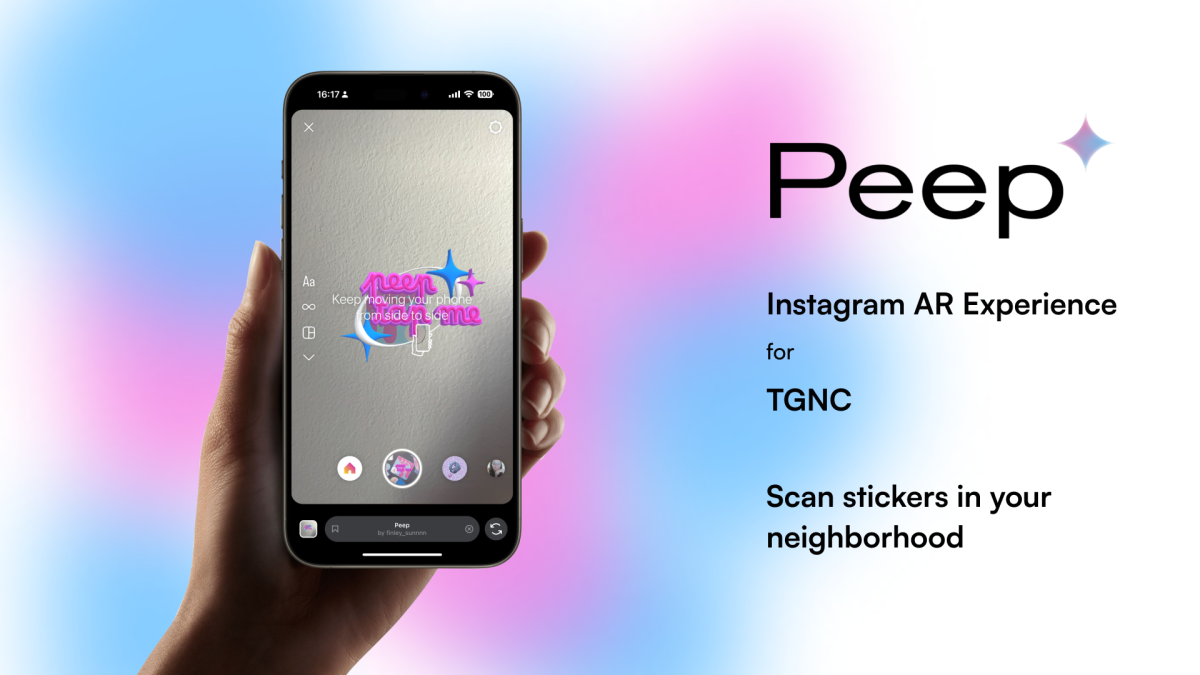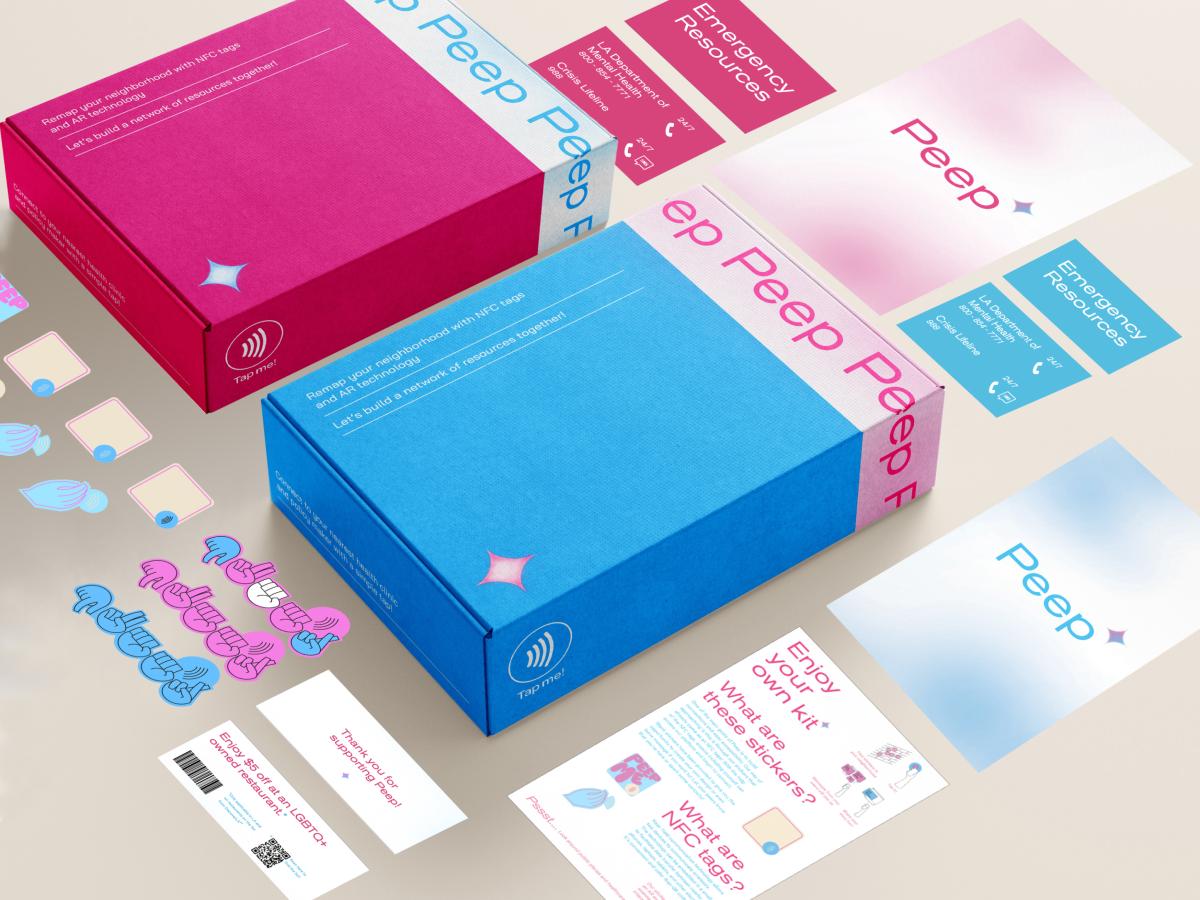Peep addresses the harrowing rates of violence and insufficient health resources for the transgender and gender non-conforming (TGNC) community by facilitating a chance for the community to build connections and access resources through geolocation. This platform empowers the TGNC community in the Greater Los Angeles area to share health resources, remap their neighborhood, connect with health institutions and policy makers, and more importantly, build connections with TGNC neighbors. To achieve this, Peep provides a resource sharing service by using NFC technology, a geolocation-based app, and an accessible kit that includes NFC stickers, a guideline, coupons for local restaurants that are LGBTQ+ owned, and a local emergency resources trust list. By enabling access to our platform via these NFC stickers, with a simple tap TGNC folks are able to access these resources and even participate in spreading the NFC stickers furthering our outreach efforts.
The service design project Peep is innovative in several ways. Firstly, Peep is designed with a multimedia method to enable TGNC folks to engage with one another. The NFC stickers provide quick access to the platform and an easy way to introduce Peep to potential users. Instagram AR filters, using image recognition, enable people to find NFC stickers in the city and share stories to enhance social media awareness. Secondly, Peep encourages people to remap their neighborhood by placing NFC stickers where they feel safe or unsafe. The app provides a platform to build TGNC trust resources, connect with the community, and easily access local health institutions and policymakers. The TGNC community, as a marginalized group, suffers more from the systemic oppression. The widespread use of mapping technology is directly linked to the access to local resources such as housing and healthcare. For example, the problematic residential security map is still widely used. This raises questions such as who creates these maps? What type of data is collected? However, with the application of Digital Feminism theory, which argues that data ethics and its focus on fairness and biases create structures that protect power, a remapping movement could challenge the prevailing unjust structures. From the bottom up, Peep encourages the TGNC community to participate in the campaign and create their own maps. The data is updated in real-time and will ultimately be collected and analyzed for the safety of the TGNC community and by the TGNC community itself.
The Peep kit’s design thoughtfully integrates aesthetics and functionality, reflecting the diverse intersectional identities within the TGNC community. The use of gradient colors symbolizes overlapping intersectionalities, visually portraying unity.The subtle integration of colors inspired by the transgender flag demonstrates a nuanced approach, avoiding overt symbolism while fostering a connection with the audience. This design not only addresses the community’s needs but also serves as an educational tool, encouraging users to share resources with peers. Practical considerations are evident through the incorporation of stickers as NFC tags, providing both portability and interactive engagement. Tapping icons on stickers enhances users guidance and engagement, showcasing a user-centered approach. To make the Peep kit easily accessible, production costs were also taken into account. Manufacturing stickers as NFC tags also shows the Peep kit is cost effective with the average cost of manufacturing NFC tags ranging from $0.10 to $1 and printing $0.12 per unit. The Peep kit is a harmonious blend of form and function, embodying inclusivity and accessibility while navigation manufacturing constraints, making it a visually engaging, user-friendly, and effective solution for the TGNC community.

